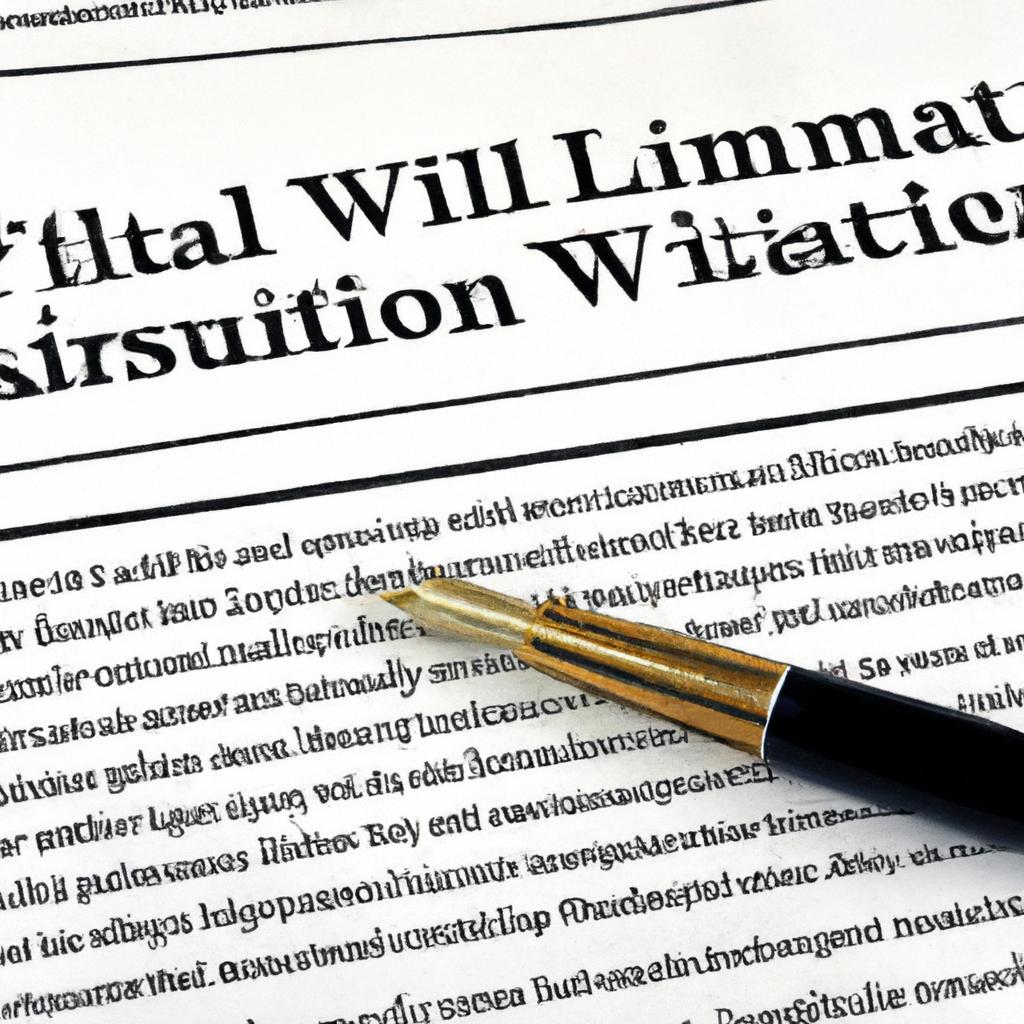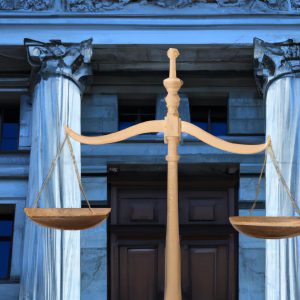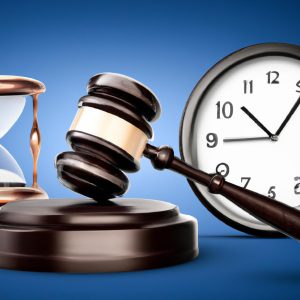As an experienced attorney with Morgan Legal Group in New York City, it is essential to understand the importance of preparing a will. A will is a critical legal document that ensures your final wishes are executed as you desire. In this article, we will explore the essential elements you need to consider when creating a will to protect your assets and provide for your loved ones. From understanding the intricacies of estate planning to navigating the complexities of probate and elder law, we will guide you through the process of drafting a comprehensive and effective will that reflects your wishes and safeguards your legacy. Whether you are considering creating a will for the first time or updating an existing document, this article will provide you with the knowledge and insight necessary to make informed decisions about your estate planning needs.
Determining Your Assets and Liabilities
is a crucial step in the estate planning process. Before drafting a will, it is essential to have a clear understanding of what you own and what you owe. By taking inventory of your assets and liabilities, you can ensure that your wishes are accurately reflected in your will and that your loved ones are provided for after you are gone.
Assets may include:
- Real estate properties
- Bank accounts
- Investment accounts
- Retirement accounts
- Personal belongings
Liabilities may include:
- Mortgages
- Car loans
- Credit card debt
- Student loans
- Medical bills
Having a comprehensive list of your assets and liabilities will not only make the will drafting process smoother but will also help your attorney tailor your estate plan to meet your specific needs and goals. Remember, is the foundation of a well-crafted will that protects your loved ones and preserves your legacy.
Selecting Your Beneficiaries and Executors
When creating a will, it is crucial to carefully consider who will be your beneficiaries and executors. Your beneficiaries are the individuals or organizations that will receive your assets after you pass away, while your executor is the person responsible for carrying out the instructions in your will. Here are some important factors to keep in mind when :
Choosing Beneficiaries:
- Consider your family members, friends, and any charitable organizations you wish to include
- Be clear and specific in your instructions to avoid any confusion or disputes
- Review and update your beneficiaries regularly, especially after major life events such as marriage, divorce, or the birth of a child
Selecting Executors:
- Choose someone you trust and who is capable of handling the responsibilities of executing your will
- Discuss your decision with your chosen executor beforehand to ensure they are willing and able to take on the role
- Consider appointing a backup executor in case the primary executor is unable to fulfill their duties

Drafting a Comprehensive Will
When , there are several key elements that you need to consider to ensure that your final wishes are properly outlined and legally binding. First and foremost, you must clearly identify yourself as the testator and provide your full legal name, address, and any other pertinent personal information. Additionally, you should appoint an executor who will be responsible for carrying out the terms of your will and distributing your assets according to your instructions.<br />Here are some essential items to include in your will:
- A detailed list of your assets, including real estate, bank accounts, investments, and personal property.
- Specific bequests for individual items or amounts of money to named beneficiaries.
- Provisions for the care of minor children or dependents.
- Instructions for the distribution of any remaining assets after specific bequests have been fulfilled.
- Contingency plans in case any named beneficiaries predecease you.

Securing Witnesses and Notarization
When creating a will, it is crucial to secure witnesses and notarization to ensure the validity and legality of the document. Witnesses play a vital role in confirming the testator’s identity and mental capacity at the time of signing the will. It is recommended to choose witnesses who are not beneficiaries or spouses of beneficiaries to prevent any conflict of interest. The witnesses must be present when the testator signs the will and they must also sign the document themselves.
To further safeguard the authenticity of the will, notarization is highly recommended. A notary public will verify the identity of the testator and witnesses, as well as ensure that they are signing the document voluntarily. Notarization adds an extra layer of protection against potential challenges to the will’s validity in court. It is essential to follow all legal requirements for to prevent any disputes or complications during the probate process.
Q&A
Q: What is a will and why do I need one?
A: A will is a legal document that outlines how you want your assets to be distributed after your death. It ensures that your wishes are carried out and helps avoid potential disputes among family members.
Q: What are the essential elements of a will?
A: A will should include the names of your beneficiaries, a list of your assets and how you want them to be distributed, appoint an executor to handle your estate, and designate a guardian for any minor children.
Q: Do I need a lawyer to create a will?
A: While it is not required to have a lawyer draft your will, it is highly recommended to ensure that all legal requirements are met and to prevent any future disputes.
Q: Is there anything else I should include in my will?
A: You may also want to include instructions for your funeral arrangements, any specific gifts you want to leave to individuals or charities, and provisions for any pets you may have.
Q: What happens if I die without a will?
A: If you die without a will, your assets will be distributed according to state laws, which may not align with your wishes. It can also lead to lengthy court proceedings and potential family disputes.
In Conclusion
Remember, creating a will is one of the most important decisions you will make in your life. By having a clear plan in place, you can ensure that your wishes are carried out and that your loved ones are taken care of. So, gather these essential items, take the time to think about your wishes, and consult with a legal professional to create a comprehensive will that reflects your unique circumstances. Your future self and your family will thank you for it.
 What You Need for a Will: Ensuring Your Legacy is Protected
What You Need for a Will: Ensuring Your Legacy is Protected
The idea of creating a will may seem daunting and uncomfortable, but it is an essential part of your financial and estate planning. A will is a legal document that dictates how your assets will be distributed after your passing. It not only provides peace of mind, but it also protects your loved ones and ensures that your final wishes are carried out.
While many people understand the importance of having a will, they may not be aware of what is needed to create one. This article will provide a comprehensive guide on what you need for a will and why it is crucial to have this document in place.
Requirements for a Valid Will
Before diving into the specifics of what you need for a will, it is essential to understand the basic requirements for a valid will. These requirements may vary based on state or country, but the following elements are typically needed for a will to be legally binding:
1. Legal Capacity: You must be of legal age (18+ in most states) and of sound mind at the time of creating your will. This means that you understand the implications of creating a will and are not under any undue influence or duress.
2. Intent: The testator (person creating the will) must have the intention to draft a legally binding document that outlines their final wishes.
3. Witnesses: Most states require at least two witnesses to be present when signing a will. These witnesses must also sign the will to attest that the testator was of sound mind and not under any external pressure to create the document.
What You Need for a Will:
1. Itemize Your Assets
The first step in creating a will is to make a list of all your assets. These include your bank accounts, investments, real estate, insurance policies, and other valuables such as jewelry or artwork. It is crucial to provide accurate and detailed information about your assets to avoid any confusion or disputes in the future.
2. Determine Beneficiaries and Executors
Next, you need to decide who will inherit your assets and act as an executor of your will. Your beneficiaries can be people, organizations, or even charities. Choose individuals whom you trust to carry out your final wishes and have their contact information readily available for your executor to reach out to.
3. Appoint a Guardian for Minor Children
If you have minor children, it is important to designate a legal guardian in your will. This person will take care of your children in the event of your passing and ensure their well-being and upbringing. It is crucial to have open and honest discussions with the chosen guardian before appointing them in your will to ensure they are willing and able to take on this responsibility.
4. Consider Taxes and Debts
It is essential to consider any taxes or outstanding debts you may have when creating your will. Debts are typically settled before any assets are distributed, so it is necessary to account for these so as not to leave your loved ones with unexpected financial burdens.
5. Hire an Attorney and Get Witnesses
While it is possible to create a will without legal assistance, it is highly recommended to seek legal counsel. An experienced estate planning attorney can ensure that your will aligns with state laws and is clear and unambiguous to avoid any potential challenges in the future. Additionally, the witnesses must be present during the execution of the will, so make sure to have them available at the time of signing.
Benefits of Having a Will
Creating a will is a critical part of your financial and estate planning, and it offers several benefits, including:
1. Control Over Distribution of Assets: A will allows you to specify who inherits your assets and how they are distributed, giving you control over your final wishes.
2. Avoid Intestate Laws: Dying without a will (intestate) means that state laws will determine how your assets are distributed, which may not align with your wishes. Having a will ensures that your assets are distributed according to your preferences.
3. Protect Minor Children: A will allows you to designate a legal guardian for your minor children, ensuring their well-being and upbringing according to your wishes.
4. Minimize Conflicts and Legal Challenges: A well-drafted will reduces the likelihood of disputes or challenges from family members as your final wishes are clearly outlined and legally binding.
Practical Tips for Creating a Will
1. Regular Updates: It is important to review and update your will periodically as your life circumstances change. This includes changes in marital status, the birth of children or grandchildren, and significant changes in assets.
2. Keep Your Will in a Safe Place: Once your will is executed, make sure to store it in a safe and accessible location. You may also want to inform your executor of where it is kept and provide them with a copy for their records.
3. Communicate Your Final Wishes: While it may be uncomfortable, it is important to communicate your final wishes to your loved ones and explain the reasoning behind your decisions. This can help minimize potential conflicts and ensure your legacy is carried out according to your intentions.
Final Thoughts
Having a will in place is a crucial part of your estate planning and can bring peace of mind knowing that your assets and loved ones are protected. By following the above guidelines and seeking legal counsel, you can ensure that your final wishes are carried out according to your wishes. Remember to review and update your will regularly and communicate openly with your loved ones about your final wishes. This way, you can secure your legacy and protect your loved ones even after you are gone.






